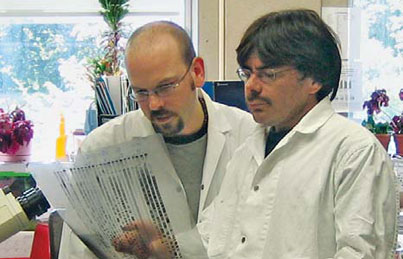
Chemotherapy continues to be one of the most effective methods for combating cancer, but its success is hardly a sure thing.
“One of the major problems with cancer therapy,” says biochemistry professor Jerry Pelletier, “is that the tumours either fail to respond or stop responding over time to various chemotherapy drugs.” Pelletier and a team of McGill researchers have discovered a natural compound that seems to give chemotherapy the upper hand when pitted against stubbornly resilient tumours. Their study was published in the Journal of Clinical Investigation.
Working with mice genetically modified to mimic human leukemia, the scientists probed the effectiveness of a class of natural products known as cyclopenta benzofuran flavaglines (CBF). The McGill team discovered that one particular CBF compound, silvestrol, can re-sensitize leukemia cells which had previously demonstrated resistance to the chemotherapy agent doxorubicin.
“Essentially, we have turned off the cancer cell’s survival signals, which is associated with resistance,” Pelletier says.
Silvestrol is derived from trees and shrubs in Malaysia, southern China and some Pacific islands. Although used in Malaysian folk medicine for generations, it has never before been employed as a cancer treatment; researchers still need to determine if silvestrol can be similarly effective in resensitizing cancer cells in humans.
This research was supported by grants from the National Cancer Institute of Canada and the Canadian Institutes of Health Research (CIHR).
